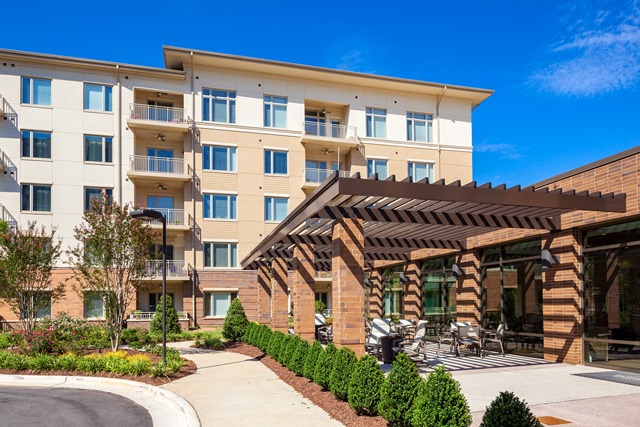Senior living providers eagerly await FDA approval of a COVID-19 vaccine and are preparing the logistical plans needed to ensure a fast and efficient process to vaccinate residents. In the meantime, robust testing remains the most effective strategy for protecting residents and staff from widespread infection. To better understand current testing strategies and how they have adapted over time, I spoke with Ed Ward, Vice President of Operations, Kisco Senior Living to learn more about their innovative testing program.
Kisco Senior Living, a Carlsbad, California-based provider, has embarked on a strategy of pool testing. Pool testing, also known as batch testing, combines saliva samples from a large group and tests the combined sample for evidence of the coronavirus all at one time. This process can be cost effective and easier to implement than repeated, individual testing. It can also instill confidence among staff, residents, and their families. Further, pool testing cuts down on both time and supplies required and, as discussed in a NIC Leadership Huddle, is a strategy that is being utilized by other high-profile organizations, such as the National Basketball Association. If a sampled pool generates positive test results, then everyone in that group receives an individual PCR test as follow-up. Contact tracing to identify other residents or staff who may have been exposed can then begin as well.
In our conversation, Ward described reluctance by some residents to undergo the sometimes uncomfortable nasopharyngeal PCR testing process, and as a result, he said that a portion of residents were foregoing routine medical appointments to avoid having to isolate themselves for the subsequent two weeks. Ward said, “We thought it was unacceptable to do invasive testing if we were going to do regular and routine testing of our residents.” Kisco implemented rapid, antigen testing residents for a time, but found that for asymptomatic individuals, the rapid test wasn’t as accurate as they needed it to be. “We wanted something as accurate for asymptomatic individuals as it was for those who are symptomatic.”
Residents are grouped into pools based on their risk profile. All residents are tested at least once per week. Any resident who leaves the community, to go to a medical appointment for example, is considered at higher-risk, and tested twice per week. Associates are also tested twice per week.
At Kisco, two pool sample sizes are utilized, depending on factors such as building census and location of where people work or reside. For smaller properties, a pool of up to 50 residents is typically used. For larger properties, a pool size of up to 100 can be tested. It is more expensive to test the larger pool size, but on a per-resident basis, the cost is less than the smaller pool size. The program’s cost amounted to approximately $100,000 per month, and Kisco has included testing expenses in their 2021 budget.
Ward told me that he is in regular contact with the labs that process their pooled samples to understand their turnaround times. Samples are overnighted and are turned around within at least 24 hours, often only taking 12 hours. Because Kisco can identify COVID-19 positive cases so early, “This has allowed us to open up dining and activities and have a lot more confidence about our operation,” Ward explained.
In addition to testing staff and residents, Kisco includes anyone coming into their property – whether for hospice, home health, or salon services – in their higher-risk pools. “Agencies might have their own testing protocols, but by controlling it ourselves and including them in our pools in order to provide services in our buildings, this gives us another degree of confidence,” Ward said.
Kisco is also working with their lab partners to facilitate safer and more confident visitation of residents. This includes a program – now available in all Kisco communities – where visitors can consent to providing PCR test results directly from the lab to Kisco. Upon a negative test, visitors are cleared to visit the community within a 24-hour period. Moving forward, Ward explains, “If vaccines, therapeutics, or other advances to control this virus emerge, we will monitor the science and data and make adjustments based on the facts at the time.”
It seems clear that pool testing may in fact be one of the most appropriate ways to test residents in a large, congregate setting, and in this case, has increased the likelihood of residents keeping up with their routine medical appointments, allowed for safer and more confident visitation of residents, and a return to more ‘normal’ conditions for Kisco residents.
